Unlock the Power of Tax Deductions on your Rental Properties

One of the many reasons investors purchase real estate is tax benefits. Here’s a breakdown of your deduction opportunities.
If you receive rental income from the rental of a dwelling unit, there are certain rental expenses you may deduct on your tax return such as:
- mortgage interest
- property tax
- operating expenses
- depreciation
- repairs
You can deduct the ordinary expenses for your rental property:
- managing
- conserving
- maintaining
You can deduct the necessary expenses for your rental property:
- interest
- taxes
- advertising
- maintenance
- utilities
- insurance
You can also deduct the costs of expenses that keep your property in good operating condition.
- materials
- supplies
- repairs
- maintenance
You CAN deduct the expenses paid by the tenant if they are deductible rental expenses. When you include the fair market value of the property or services in your rental income, you can deduct that same amount as a rental expense.
You may NOT deduct the cost of improvements. A rental property is improved only if the amounts paid are for a betterment or restoration or adaptation to a new or different use. See the Tangible Property Regulations – Frequently Asked Questions for more information about improvements. The cost of improvements is recovered through depreciation.
You can recover some or all of your improvements by using Form 4562. to report depreciation beginning in the year your rental property is first placed in service, and beginning in any year you make an improvement or add furnishings. Only a percentage of these expenses are deductible in the year they are incurred.
